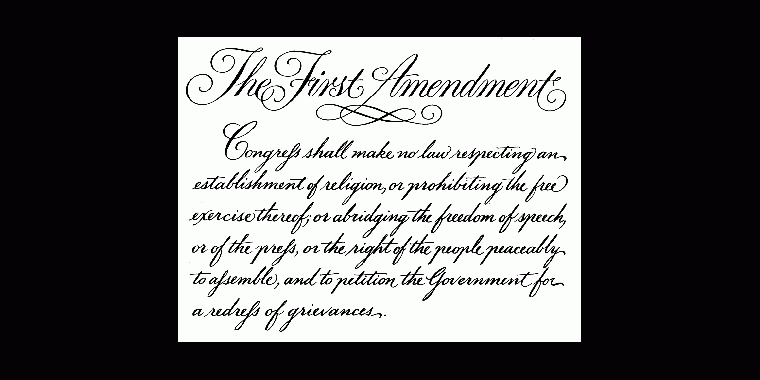
Union Raises 1st Amendment Concerns on “Outside Employment” Restrictions
8/20/10: This morning, the SEC notified all employees that new amendments to 17 C.F.R. Subpart 200.735 are now in effect. These amendments originally included changes to 5 C.F.R. Section 4401.103, which deals with “Outside Employment and Activities.” In recent discussions with management, the Union objected to the SEC’s proposed changes to the outside employment rule on the grounds that they were overly broad and would result in a limiting of SEC employees’ First Amendment rights. As a result, the SEC agreed to narrow the scope of the rule and engage in bargaining with the Union over the changes. Furthermore, the agency has also agreed, at the Union’s urging, not to enforce the new provisions of the rule until this bargaining occurs and we have resolved these issues.
The Union is pleased that the agency has agreed to step back from implementation of this new rule at this time. The issues at stake for SEC employees are enormous.
Indeed, the new rule sought to define “employment” as broadly as possible, to cover every possible form of “employment or business relationship,” “whether or not for compensation,” and to require SEC employees to obtain “prior approval” from the SEC for all of these activities.
As an example, as currently interpreted by the Ethics Office, the new rule could require SEC pre-approval for all forms of outside written communication by SEC employees. For example, under the new rule, the Ethics Office has recently indicated that it would require prior approval for publishing a family genealogy, even if the employee did not receive any compensation for the book and even where the number of copies produced was limited to less than 100. The Ethics Office appears to be basing its prior approval requirement on the fact that the genealogy was published, and nothing more. Under this analysis, publishing anything would require prior approval whether or not it related in any way to the work of the SEC.
The impact of this new rule and its broad interpretation by the Ethics Office has no apparent limit. Employees might be required to get pre-approval before publishing: a letter to the editor of their local newspaper regarding a matter of local concern; writing on a social networking site; blogging on the internet about gardening on a personal gardening blog; writing and publishing a science fiction novel; sending an email out to friends about a recent trip to Europe; writing and distributing a letter encouraging friends and neighbors to vote for a particular candidate for local office; making prepared remarks regarding the history of one’s town at a local festival; making prepared remarks at a political rally; or making remarks from notes at a book club meeting.
The First Amendment implications are obvious. Should an employee, for example, be compelled to seek approval from his or her boss before publishing a pamphlet in his or her community about his or her religious beliefs? Before publishing a letter in a local GLBT newspaper? Before making prepared remarks at a neighborhood cookout about a local political race or issue like school funding?
The Union’s concerns extend beyond outside writing and speaking. For example, an employee helping her father cut lawns when his sole employee fails to appear for work, babysitting for a family member when a babysitter is unable to appear for work, taking photographs at a family member’s wedding when a wedding photographer cancels his appearance under the current rule would all require pre-approval.
The Rule also reaches into volunteer activities of a nonprofit charitable, religious, professional, civic, or public service organization even if they do not involve in any way whatsoever the work of the SEC. For example, serving as an officer or director of such an organization, would not only require pre-approval but, as currently intepreted by the Ethics Office, it would also require that employees identify the other members of the board, as well as any professionals who provide services to the organization whether any potential conflict with one’s SEC employment exists or not.
SEC employees already understand that there are prohibitions and restrictions that apply to their outside activities. For example, they are aware of restrictions upon receiving compensation in matters affecting the Government, activities in claims against and other matters affecting the Government, and acts affecting a personal financial interest. They understand that they may not engage in outside employment or activities that conflict with the SEC’s mission. They know that they may not seek employment with an entity regulated by the SEC. They know that they not be involved with employment or activity related to the issuance, purchase, sale, investment or trading of securities or futures (aside from permitted securities holdings and transactions).
At bottom, a broad sweeping rule that covers so many different types of outside activities is not necessary to ensure that employees comply with these pre-existing restrictions upon their activities. Accordingly, the Union will continue to work with the SEC to ensure that the rule is narrowed.
We will keep you updated regarding this issue as we move forward.
